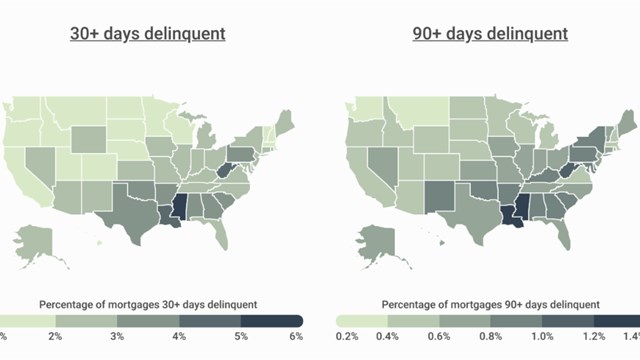By all accounts, the condo/co-op real estate market in New Jersey was more than robust during 2004 and experts are hopeful that the trend will continue in 2005.
Whether it's Union County, Morris County or Hudson County, the feeling is that condos/townhouses or co-ops, depending on the location, will continue to be a hot commodity. In New Jersey, by the way, we're usually talking about condos—co-ops are found mainly in urban areas such as Hoboken and Jersey City, and are often conversions of older residential rental buildings.
For the real estate market in general, 2004 was another successful year in New Jersey, driven by strong demand. According to average Morris County sales figures (including both single-family homes and condos) provided by local Weichert realtor Debby Strott, compared to 2003, median sale prices in 2004 were up in almost every town in Northern New Jersey. For example, median sale prices in Boonton increased 9.16 percent, Morristown increased 12.43 percent, Parsippany-Troy Hills increased 12.50 percent, and Washington Township increased 6.9 percent.
Most realtors and industry pros don't seem to feel that the war in Iraq, the recession, or politics had any appreciable effect on the New Jersey condo/co-op market in 2004. "We had a very healthy appreciation last year," says Strott.
A Steady, Strong Trend
Similarly, 2004 was basically a continuation of the strong trend of the last few years. "[The market] went down for about a year right after 9/11," says Lisa O'Neill of Hoboken Homes-Century 21 Innovative Realty, "but it came right back up, and has been holding steady since then."
"Starting in about 2000, the co-op/condo market really started to boom—and that really has to do with the demographics," says Carolyn Weiss of RE/MAX Properties Unlimited in Morristown. "We have a convergence of several populations: people looking for maintenance-free living, empty-nesters, first-time buyers and investors. From 2000 until this summer, it just boomed and it didn't stop," she says, although she reports that she started to see a slight slowdown after June of 2004.
Indeed, figures provided by Weiss for common interest ownership units taken from the Garden State Multiple Listing Service (MLS) shows a steady increase from 2000 to 2004 in the number of units sold. In Morris County, the numbers went from 1,307 in 2000 to 1,520 in 2004; in Essex, from 716 to 1,087; in Somerset, from 1,737 to 2,164; and in Passaic, from 617 to 820. (The data does not necessarily include new construction not in the MLS system.)
According to realtors, condo and co-op buyers were looking for some specific amenities in their apartments and townhouses last year. Features cited as big selling points include hardwood floors, multiple bedrooms and bathrooms, fireplaces, spectacular views, dishwashers, washer-dryers, central air conditioning/heating, extra storage space and roomy garages.
Of course, while some factors are constant, others change depending upon location. In addition to the aforementioned amenities, O'Neill says that in Hoboken especially, the issue is "Parking, parking and parking!" Anyone who has driven in the "mile-square city," with its narrow 19th century streets, will appreciate what she means.
Allan Schuster of Weichert Realtors in Union County says many homebuyers in his area—which also contains many good-sized cities—are interested in gated communities, and says, "There's a [gated] development called The Point in Union that's very popular and has a lot of activity."
Low Interest Rates
For several years, interest rates were the lowest in decades, stimulating home buying. Now, interest rates and mortgages are starting to rise slightly. Those interviewed for this article had varying viewpoints about what this means for the condo and co-op market.
According to Weiss, "Mortgage and interest rates have been the lowest in 45 years—that's what spurred the market on, combined with low inventory." When the interest rates went up slightly, and prices began to increase, Weiss continues, "The first-time buyer was priced out of the market. It's so difficult for a first-time buyer in Morris and Essex County because the prices are so high." According to HSH Associates, a mortgage consultant, New Jersey mortgage rates are averaging around 5.16 percent for a 15-year conventional mortgage; 5.81 percent for a 30-year conventional mortgage; and 4.03 percent for a 1-year adjustable rate mortgage.
On the other hand, says O'Neill, from the standpoint of Hoboken, "The low interest rates opened up the gate for many first-time buyers—they were able to buy because interest was so low. The interest rates are still not high enough that they're scaring people off. At least it's not affecting our market yet."
Schuster concurs. "People are still getting good deals," he says.
Outlook for 2005
Just as experts say that political, economic and global factors had little effect on the New Jersey housing market during the past year, they believe such factors will likely have little effect in the coming year as well.
Some do feel that certain factors may change the market somewhat. Strott says that the recent Highlands regulations—which set aside 400,000 acres in North Jersey near the region's rivers and reservoirs—will increase prices in the resale market, since there are now fewer properties available for development.
"The market will thrive," says Weiss, "but we cannot expect the same rate of appreciation as in the past."
In general, the real estate agents' confidence in the market mirrors their faith in the areas they serve. "There is so much development going on—and I'm only speaking of the area I handle," says O'Neill.
Strott is also enthusiastic about her area, Morris County, which she points out is "Home to 56 Fortune 500 companies" and is convenient to New York City.
As always, certain cities, towns and neighborhoods are becoming more fashionable, some less fashionable.
Schuster, who handles Union County, says certain parts of South Orange and Maplewood are becoming "a little cooler." On the other hand, he says, Newark and Elizabeth are becoming hotter, and people are developing an interest in Irvington, which is attracting some new investors.
Weiss, who deals with Essex and Somerset Counties in addition to Morris, says she doesn't see a change in the desirability of those areas. O'Neill in Hudson County says, "I haven't seen any areas cooling off. Everything's flying up: co-ops, condos, multi-family homes, single-family homes."
New Developments and New Trends
In general, both the suburbs and urban areas are selling well—experts who deal with both types of areas report positive trends. Condo developments are being built in both suburban and more urban areas throughout Northern New Jersey.
Strott says that in her experience, conversions of existing buildings have become a significant trend—she calls attention to the planned residential development on the site of the former Epstein's Department Store in Morristown.
As described at a recent Town Council presentation, the owners of the Epstein's building want to morph the property into an 84-unit condominium complex, 16 to 20 loft-style condos, some new townhouses and apartments, and retail units.
Another proposed condo development in Morristown would develop the historic Vail Mansion into a mixed-use development featuring 48 luxury condo units.
In Hudson County, says O'Neill, "The [conversion of the] former Maxwell House building in Hoboken is one of the largest. Downtown Jersey City is also hot—there's a lot of new construction."
The Hoboken development she's referring to is Maxwell Place on the Hudson, an 852-home community developed by Pinnacle Ltd. and Toll Brothers on the site of the famous coffee manufacturer's former facility.
Nearby in the Bergen-Lafayette section of Jersey City, near Liberty State Park, developer Lance Lucarelli is planning a $135 million, three-towered project called The View.
And in Union County, says Schuster, sales activity is brisk for new condos that have been designed as part of a mixed-use "transit village" near Union Township's new train station on the New Jersey Transit Raritan Valley Line—a station that opened just two years ago.
What the Buyers Want
As for what condo and co-op buyers will want in their homes in the coming years, chances are they'll want many of the same solid amenities they wanted in the past. Multiple baths and state-of-the-art kitchens have always been important, and they still are.
One of the high-end features we'll see more of in the future is concierge service similar to what's available in luxury hotels, says Strott. Concierges can help condo owners with their laundry, their pets, and their guests. On-site services such as gyms and grocery stores for residents in condo developments also are a growing trend, she reports.
In addition to physical amenities, buyers are very concerned about real estate taxes and the quality of the local school districts, says Schuster. As an example, he says, Roselle and Hillside have comparatively high real estate taxes, and some buyers are leaving those areas and coming to Union Township. If a particular town has both high real estate taxes and questionable schools, that combination can steer buyers elsewhere.
All in all, real estate agents are basically confident that the condo/co-op market will remain strong in the coming year. "I don't see any cooling," says Strott. "Condos are a fantastic lifestyle," one that gives the benefits of homeownership without many of the headaches.
Ranaan Geberer is a freelance writer and frequent contributor to The New Jersey Cooperator.






Leave a Comment